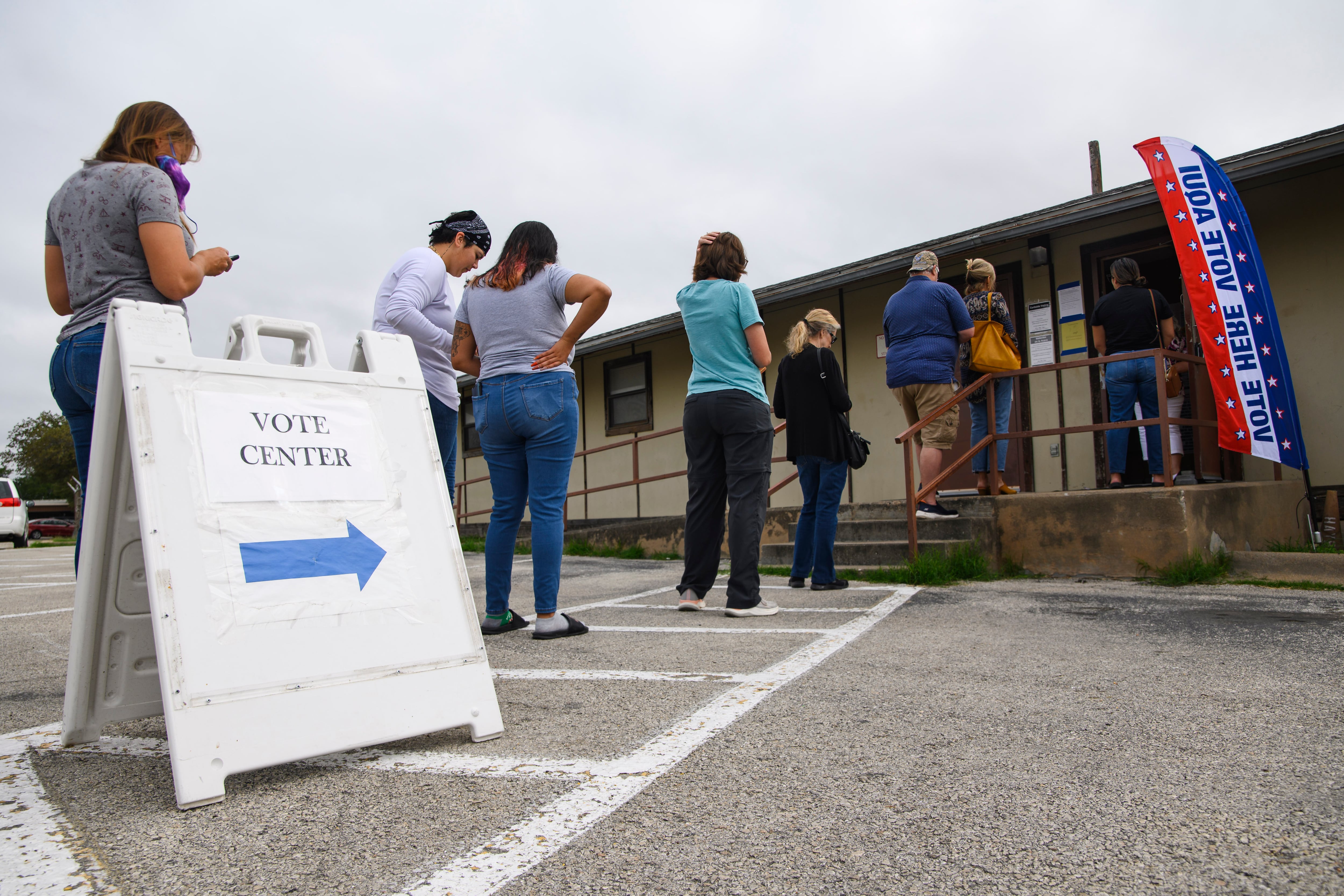Votebeat is a nonprofit news organization reporting on voting access and election administration across the U.S. Sign up for our free newsletters here.
Texas legislators reached agreement Saturday on a bill to raise the penalty for illegal voting from a misdemeanor to a second-degree felony, finding a compromise that will prevent ineligible voters from being prosecuted for mistakenly casting a ballot. A person convicted of an attempt to vote illegally would be subject to a state jail felony.
A 10-lawmaker conference committee resolved the differences between the House and Senate versions of House Bill 1243 on Saturday, after the House rejected last-minute language Sen. Bryan Hughes had added that would have allowed prosecutors to charge a voter who had unintentionally cast an illegal ballot.
The agreement means the bill will almost certainly win final approval in both chambers and be sent to the governor.
Adjusting the penalty for illegal voting has been a priority for Texas Republican leaders since 2021, when the Legislature downgraded illegal voting from a second-degree felony to a Class A misdemeanor as part of an omnibus voting bill. Few noticed the change until after the session ended, and several bills to readjust the penalty were filed this year despite the lack of evidence of widespread voter fraud in Texas.
“The Legislature lowered this penalty less than two years ago. In that time, we have not seen this crime increase, as evidenced by the lack of charges or convictions,” said Rep. John Bucy, D-Austin, who served on the conference committee but chose not to sign the conference report. “While I am glad the protections for innocent mistakes are still intact, which was not the case in the Senate version, there is no need to raise the penalty now.”
A second-degree felony is punishable by two to 20 years in prison, while a Class A misdemeanor can be punished with up to one year in jail.
The lowered penalties were the 2021 brainchild of Rep. Steve Allison, a Republican from San Antonio who at the time said Attorney General Ken Paxton had recommended the change. Paxton disputed this.
Katya Ehresman with Common Cause Texas said the 2021 change was lauded by those who were concerned that the many changes to the voting process that year could lead confused voters to make innocent mistakes, and that felony penalties seemed inappropriate. The compromise reached Saturday, which must be approved by the House and Senate, would reverse that change.
“Unlawful voting is already a very serious crime in Texas that can send someone to jail for up to a year. This penalty is more than sufficient to deter voter fraud, which remains almost nonexistent in Texas,” said James Slattery, senior staff attorney at the Texas Civil Rights Project. “The only effect raising the penalty for illegal voting will have is to make voting even scarier in Texas than it already is.”
Hughes’ amendment to remove the current law’s “intent requirement,” which he pushed through this week, was unlikely to receive a warm welcome in the House, where Hughes’ bill with the same language, Senate Bill 2, died last week after failing to meet a key deadline.
The law says a person commits a crime if they “knowingly or intentionally” vote or attempt to vote in an election in which the person “knows they’re not eligible” to vote. According to the secretary of state’s office, to be eligible to vote in Texas, someone must be:
- A U.S. citizen.
- A resident of the county in which they intend to vote.
- At least 18 years old. (People may register at 17 years and 10 months.)
- Not convicted of a felony (unless their sentence is completed, including any probation or parole).
- Not declared mentally incompetent by a court.
- Registered 30 days before the election in which they plan to vote.
Some voting rights advocates have said that the bill’s purpose is to intimidate voters — especially voters who have been previously incarcerated.
The effort to raise the penalty also came after a Tarrant County woman was given a five-year prison sentence for voting illegally in 2016, gaining national attention.
Crystal Mason cast a provisional ballot while on supervised release from a federal conviction and later said she did not know she was ineligible to vote. Election safeguards prevented the vote from being counted. When Mason was charged, the offense was a second-degree state felony. Because she didn’t know she was ineligible to vote, the Texas Court of Criminal Appeals directed a lower appeals court to reconsider the case. The outcome of the appeal is still pending.
Jessica Huseman is Votebeat’s editorial director and is based in Dallas. Contact Jessica at jhuseman@votebeat.org.





